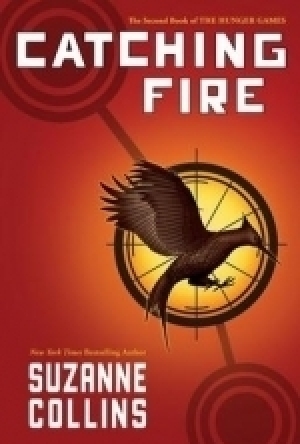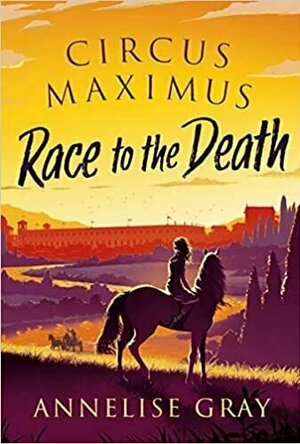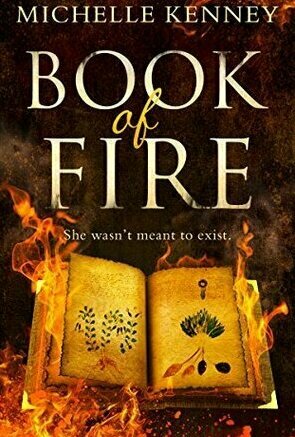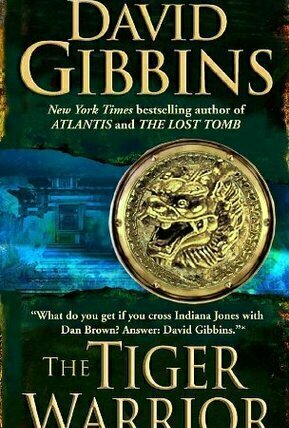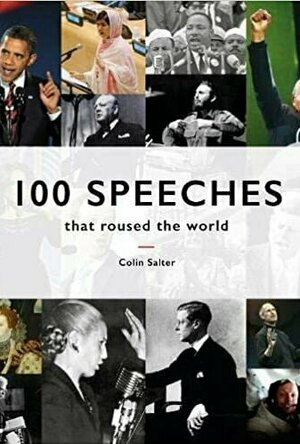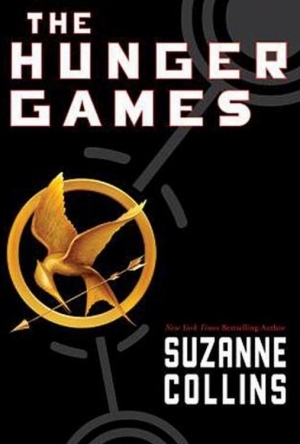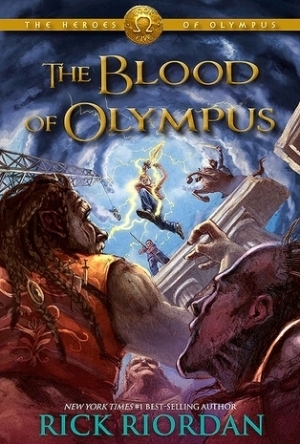Search
Search results
David McK (3562 KP) rated Catching Fire in Books
Jan 28, 2019
The second book in Suzanne Collins' <i>The Hunger Games</i> trilogy, this is a true sequel to the first in the sense that it shares the same characters and refers to the same events as the original (as opposed to 'only' being set in the same universe).
At the start of the novel, and having survived <i>The Hunger Games</i>, Katniss is back in District 12 in the company of her mother, sister, and Peeta. Things aren't entirely all rosy, however, as her stunt with the berries has enraged President Snow (and the Capitol), who is now looking for ways to further punish her, leading to her heading back into the arena ...
I have to say, the parallels between the Capitol and ancient Rome are even more pronounced this time round than previously, especially in an early(ish) scene where Katniss and Peeta attend a banquet in the Capitol: a banquet that provides it's guests with the means to be sick so they can eat more more, while those in the districts starve (the myth of the Roman Vomitorium, anyone?). Once again, this is told in the immediate first-person sense, with the novel also ending in a definite cliff-hanger for the final part of the trilogy.
At the start of the novel, and having survived <i>The Hunger Games</i>, Katniss is back in District 12 in the company of her mother, sister, and Peeta. Things aren't entirely all rosy, however, as her stunt with the berries has enraged President Snow (and the Capitol), who is now looking for ways to further punish her, leading to her heading back into the arena ...
I have to say, the parallels between the Capitol and ancient Rome are even more pronounced this time round than previously, especially in an early(ish) scene where Katniss and Peeta attend a banquet in the Capitol: a banquet that provides it's guests with the means to be sick so they can eat more more, while those in the districts starve (the myth of the Roman Vomitorium, anyone?). Once again, this is told in the immediate first-person sense, with the novel also ending in a definite cliff-hanger for the final part of the trilogy.
Deborah (162 KP) rated The Ides of April (Flavia Albia Mystery, #1) in Books
Dec 21, 2018
What's the next best thing to a new Falco novel? I suspect it must be this latest offering from Lindsey Davis who, with her tongue firmly in cheek, introduces us to the next generation in the form of Falco's adopted daughter, Flavia Albia, who is all grown up (and indeed widowed) and, guess what? Working as a private informer out of an apartment in Fountain Court!
If you liked the Falco novels, you'll like this, but if you haven't read any then you will be able to pick this up without any confusion about the back story. We've moved on from the somewhat benign Vespasian through the short lived Titus and on to mad, bad and dangerous to know Domitian. Falco and Helena are cautiously keeping their heads down!
Davis always has a knack from bringing ancient Rome to life so you get a bit of an history lesson without even realising it.
I was quite pleased with myself for picking out the culprit about halfway in. To start with, they seem to be random, senseless killings, but all is explained by the time you turn the final page - which seems to come all too soon. There were still some surprises in there that I didn't see coming too!
My favourite bit? A throwaway remark from Albia that her dad has seem some things so secret that he probably won't be able to publish his memoirs for a couple of thousand years.... Great stuff; bring on the next instalment!
If you liked the Falco novels, you'll like this, but if you haven't read any then you will be able to pick this up without any confusion about the back story. We've moved on from the somewhat benign Vespasian through the short lived Titus and on to mad, bad and dangerous to know Domitian. Falco and Helena are cautiously keeping their heads down!
Davis always has a knack from bringing ancient Rome to life so you get a bit of an history lesson without even realising it.
I was quite pleased with myself for picking out the culprit about halfway in. To start with, they seem to be random, senseless killings, but all is explained by the time you turn the final page - which seems to come all too soon. There were still some surprises in there that I didn't see coming too!
My favourite bit? A throwaway remark from Albia that her dad has seem some things so secret that he probably won't be able to publish his memoirs for a couple of thousand years.... Great stuff; bring on the next instalment!
BookInspector (124 KP) rated Circus Maximus: Race to the Death in Books
Jul 1, 2021
The protagonist in this book is Dido, a twelve-year-old girl in ancient Rome, and this story is told from her perspective. Dido was raised with horses and chariot racers, and her dream was to become a racer herself. After her father gets murdered, she has to flee Rome to survive. But she left a lot behind, and she will need to return to claim what was hers. I really liked Dido, she is so stubborn and not scared of hard work. I also really admired her self confidence and bravery in a very male-dominated environment. I had a love-hate relationship with some of the characters, I loved the ones that supported Dido, and hated all of those who were cruel to the horses. I really liked the sheer amount of horses in this book, their different personalities and their ability to work so well as a team. They are truly impressive animals. 🙂
The narrative of this book was very fast-paced and very intriguing. There were plenty of turns and unexpected surprises, that I thoroughly enjoyed. This book talks about four factions/teams: Green (everyone’s favourite), Blue (biggest Green’s competitor), White and Red (these teams were the least mentioned in this book). I have to say, that I am a supporter of the Blue faction. 🙂 There are plenty of reasons but if I will tell, it will spoil the reading experience. The topics discussed in this book are chariot racing, cheating in sports, gender power playing, mental health issues, very slight romance, animal cruelty and many more.
I was a little scared to read this book because when I saw the character listing at the beginning of the book, I thought that there will be a very wide variety of characters and I will have difficulty knowing who is who. But I was very wrong indeed. This book is beautifully written and very easy to read. The chapters have medium length, but they just flew by for me, I was very absorbed with this story. I have to throw in a warning, that this book contains animal cruelty, so if anyone is like me, tears and anger will be happening while reading. The ending of this novel rounded this story very nicely, and I can not wait for the next book in this series.
So, to conclude, the protagonist of this story is very likeable, and I was cheering her all the way till the end. All the characters in this book are very well crafted and delivered, and the plot of this book is fast-paced and absorbing.
The narrative of this book was very fast-paced and very intriguing. There were plenty of turns and unexpected surprises, that I thoroughly enjoyed. This book talks about four factions/teams: Green (everyone’s favourite), Blue (biggest Green’s competitor), White and Red (these teams were the least mentioned in this book). I have to say, that I am a supporter of the Blue faction. 🙂 There are plenty of reasons but if I will tell, it will spoil the reading experience. The topics discussed in this book are chariot racing, cheating in sports, gender power playing, mental health issues, very slight romance, animal cruelty and many more.
I was a little scared to read this book because when I saw the character listing at the beginning of the book, I thought that there will be a very wide variety of characters and I will have difficulty knowing who is who. But I was very wrong indeed. This book is beautifully written and very easy to read. The chapters have medium length, but they just flew by for me, I was very absorbed with this story. I have to throw in a warning, that this book contains animal cruelty, so if anyone is like me, tears and anger will be happening while reading. The ending of this novel rounded this story very nicely, and I can not wait for the next book in this series.
So, to conclude, the protagonist of this story is very likeable, and I was cheering her all the way till the end. All the characters in this book are very well crafted and delivered, and the plot of this book is fast-paced and absorbing.
Hazel (1853 KP) rated Book of Fire in Books
Mar 7, 2020
I was provided a copy of this book via Netgalley in exchange for an honest review
Combining dystopia and ancient history, Michelle Kenney's debut series Book of Fire slots nicely into the list of best young adult science-fiction. Set in the not so distant future, the world has been destroyed and human life can only be sustained within a specially designed lifedome - at least that is what everyone living inside has been told. The protagonist, Talia, begs to differ, having lived in secret on the outside all her life.
A rogue test missile exploded with cataclysmic effect on 3rd November 2025, leaving cities in ruins. Whilst most people ran to the lifedome, Talia's grandfather and a few others ran in the opposite direction. For years, they have lived in the relative safety of Arafel, whose existence has been kept hidden from the majority of the people living in the dome.
Unfortunately, the leader of the lifedome is one of the few who knows of their existence and wishes to eradicate them and Talia's peaceful life is suddenly destroyed when her grandfather and her twin brother Eli are captured by soldiers. Determined to rescue them, Talia and her friend Max break into the dome but what they discover makes them even more concerned about the life of not just their families but all the remaining humans.
Obsessed with Ancient Rome, the lifedome's leader Octavia has created a replica of the historical city, going as far as to genetically produce strong and powerful gladiators. Yet, the more Talia sees of the lifedome - Pantheon - the more she realises it is not just extra-strong humans that Octavia has been experimenting with. Hidden in the depth of the dome are mythological creatures made from a mix of human and animal parts; creatures that should not exist, however, they all have various defects.
Talia soon learns that her grandfather was kidnapped for a reason: he knows the secret to create the perfect DNA for these creatures and, in turn, Talia unwittingly knows it too.
Initially, all Talia wanted was her grandfather and brother back but now she is part of something much bigger and must choose between her family, self-preservation and the rest of the human race. On top of that, she begins to fall for a pseudo-Roman Gladiator. Could it get any more complicated?
Michelle Kenney has created a world where the monsters turn out to be the heroes and the humans in charge, the monsters. Reading this at the time of the coronavirus makes the apocalyptic situation a little too close for comfort but it provides a strong message not to mess with things that no longer exist. Imperfection is a common by-product of life's recover - if only Octavia could have accepted that.
Book of Fire is the first in a promising trilogy that will transport you into a world of fantasy, danger, wonderful creatures and a hint of reality. For those who love ancient history and dystopian fiction will thoroughly enjoy this series.
Combining dystopia and ancient history, Michelle Kenney's debut series Book of Fire slots nicely into the list of best young adult science-fiction. Set in the not so distant future, the world has been destroyed and human life can only be sustained within a specially designed lifedome - at least that is what everyone living inside has been told. The protagonist, Talia, begs to differ, having lived in secret on the outside all her life.
A rogue test missile exploded with cataclysmic effect on 3rd November 2025, leaving cities in ruins. Whilst most people ran to the lifedome, Talia's grandfather and a few others ran in the opposite direction. For years, they have lived in the relative safety of Arafel, whose existence has been kept hidden from the majority of the people living in the dome.
Unfortunately, the leader of the lifedome is one of the few who knows of their existence and wishes to eradicate them and Talia's peaceful life is suddenly destroyed when her grandfather and her twin brother Eli are captured by soldiers. Determined to rescue them, Talia and her friend Max break into the dome but what they discover makes them even more concerned about the life of not just their families but all the remaining humans.
Obsessed with Ancient Rome, the lifedome's leader Octavia has created a replica of the historical city, going as far as to genetically produce strong and powerful gladiators. Yet, the more Talia sees of the lifedome - Pantheon - the more she realises it is not just extra-strong humans that Octavia has been experimenting with. Hidden in the depth of the dome are mythological creatures made from a mix of human and animal parts; creatures that should not exist, however, they all have various defects.
Talia soon learns that her grandfather was kidnapped for a reason: he knows the secret to create the perfect DNA for these creatures and, in turn, Talia unwittingly knows it too.
Initially, all Talia wanted was her grandfather and brother back but now she is part of something much bigger and must choose between her family, self-preservation and the rest of the human race. On top of that, she begins to fall for a pseudo-Roman Gladiator. Could it get any more complicated?
Michelle Kenney has created a world where the monsters turn out to be the heroes and the humans in charge, the monsters. Reading this at the time of the coronavirus makes the apocalyptic situation a little too close for comfort but it provides a strong message not to mess with things that no longer exist. Imperfection is a common by-product of life's recover - if only Octavia could have accepted that.
Book of Fire is the first in a promising trilogy that will transport you into a world of fantasy, danger, wonderful creatures and a hint of reality. For those who love ancient history and dystopian fiction will thoroughly enjoy this series.
Phil Leader (619 KP) rated The Tiger Warrior (Jack Howard #4) in Books
Nov 26, 2019
The Tiger Warrior follows archaeologist and adventurer Jack Howard as he follows a tantalising clue that perhaps some escaped Roman legionaries had found themselves pitched against the bodyguard of the First Emperor of China and one had taken refuge in the jungles of India.
This might sound far-fetched but Gibbins knows his archaeology and comes up with a plausible (if tenuous) story to make this work. The story is then taken up at the end of the 19th century in India when Howard's great great grandfather is part of the British Royal Engineers Corps trying to push roads - and hence British rule - into the jungle. He stumbles across an old temple that contains a secret.
The story roves around the the world showing us some incredible - but real - historic sites across Asia. Genuine books and records are quoted to back up the (modern day) Howard's quest to find out what happened - to both the Romans and his antecedant. Everything has very solid historical underpinnings with the more fantastic elements of the story cleverly weaved between them.
I did enjoy the book but it wasn't an unqualified success. There isn't really much menace, threat or drama in what happens to Jack Howard and his associates as they follow the past (told in a series of flashback chapters), uncovering clues one step at a time. Yes there are 'bad guys' but they seem quite ineffectual and the 'big boss' is in fact never seen at all but only mentioned in passing towards the end of the book. Judging by the notes from the author this is a very personal book - the character and story of Jack's ancestor in India is very much based on his own forebear - and this limits the scope for making the pieces fit into a pleasing whole.
That isn't to say I didn't enjoy reading it - as a subtle way of introducing surprising archaeological facts it works well (I didn't know that Ancient Rome traded with India but apparently so) and some of the set pieces are gripping to read. I will certainly be finding another Jack Howard book to read, but I suspect this was too personal a project for my first taste, which is s shame.
This might sound far-fetched but Gibbins knows his archaeology and comes up with a plausible (if tenuous) story to make this work. The story is then taken up at the end of the 19th century in India when Howard's great great grandfather is part of the British Royal Engineers Corps trying to push roads - and hence British rule - into the jungle. He stumbles across an old temple that contains a secret.
The story roves around the the world showing us some incredible - but real - historic sites across Asia. Genuine books and records are quoted to back up the (modern day) Howard's quest to find out what happened - to both the Romans and his antecedant. Everything has very solid historical underpinnings with the more fantastic elements of the story cleverly weaved between them.
I did enjoy the book but it wasn't an unqualified success. There isn't really much menace, threat or drama in what happens to Jack Howard and his associates as they follow the past (told in a series of flashback chapters), uncovering clues one step at a time. Yes there are 'bad guys' but they seem quite ineffectual and the 'big boss' is in fact never seen at all but only mentioned in passing towards the end of the book. Judging by the notes from the author this is a very personal book - the character and story of Jack's ancestor in India is very much based on his own forebear - and this limits the scope for making the pieces fit into a pleasing whole.
That isn't to say I didn't enjoy reading it - as a subtle way of introducing surprising archaeological facts it works well (I didn't know that Ancient Rome traded with India but apparently so) and some of the set pieces are gripping to read. I will certainly be finding another Jack Howard book to read, but I suspect this was too personal a project for my first taste, which is s shame.
Ivana A. | Diary of Difference (1171 KP) rated 100 Speeches that roused the world in Books
Oct 5, 2020
<a href="https://amzn.to/2Wi7amb">Wishlist</a>; | <a
<a href="https://diaryofdifference.com/">Blog</a>; | <a href="https://www.facebook.com/diaryofdifference/">Facebook</a>; | <a href="https://twitter.com/DiaryDifference">Twitter</a>; | <a href="https://www.instagram.com/diaryofdifference/">Instagram</a>; | <a href="https://www.pinterest.co.uk/diaryofdifference/pins/">Pinterest</a>;
<img src="https://i1.wp.com/diaryofdifference.com/wp-content/uploads/2020/09/Book-Review-Banner-86.png?resize=768%2C432&ssl=1"/>;
<b><i>Boy, oh boy, do I have mixed feelings about 100 Speeches That Roused the World by Colin Salter.</i></b>
The reason I picked up this book is because I have always been in love with speeches and orators. I believe that the ability to speak in front of an audience is a very powerful skill, and I admire it as such. Many great leaders and many successful people use this skill to make people listen and act in a way they want them to. That is where the true art is, and I really admire this aspect. The fact that you can listen to two or more people tell you the same thing, and only one being able to convince you to do something or believe in something they say is a true gift.
Which takes us to the second reason I picked this book up. To find out more about the people who had this ability in history and made a difference in one way or another. And for the most part, I was pleased. There are speeches of many great (and not so great) leaders out there, speeches of people that made breakthroughs in their fields, people who fought for their rights.
<b><i>But there was a pattern I noticed in these 100 speeches.</i></b>
Most of these speeches were either from the UK or USA. And most of them were presidents, prime ministers,royalty or leaders in any other way. And all their speeches were speeches during the wars. Telling their people to fight for their nations.
And I have nothing against those speeches. They were perfect for their time and they did their purpose at the time. What I had a problem with is that there were so many more important times in history when a speech was made and it represented a change.
What about all the speeches that philosophers have given in ancient Rome and Greece? For Rome, where is Julius Caesar’s speech to the senate? For Greece, how about the movement for freedom of speech? What about the speeches during humanism and renaissance? What about some of the groundbreaking speeches that scientists have given over the years?
I was a bit disappointed with the format of the book as well, as the speeches were mostly short paragraphs, followed by a full page of the author’s notes, mostly quoting the same speech again. It was very helpful to know the background of how the speech made a difference in the world, but when most of those speeches didn’t really make any difference, and I was involved in a history lesson of the most important wars in history, it wasn’t much of a fun read.
<b><i>To conclude, this book wasn’t what I was looking for, both format and content wise. The 100 Speeches mentioned in this book didn’t do enough justice for me. I believe that title is misleading, but I can also understand that some people can still learn a lot by reading it.</i></b>
<a href="https://diaryofdifference.com/">Blog</a>; | <a href="https://www.facebook.com/diaryofdifference/">Facebook</a>; | <a href="https://twitter.com/DiaryDifference">Twitter</a>; | <a href="https://www.instagram.com/diaryofdifference/">Instagram</a>; | <a href="https://www.pinterest.co.uk/diaryofdifference/pins/">Pinterest</a>;
<img src="https://i1.wp.com/diaryofdifference.com/wp-content/uploads/2020/09/Book-Review-Banner-86.png?resize=768%2C432&ssl=1"/>;
<b><i>Boy, oh boy, do I have mixed feelings about 100 Speeches That Roused the World by Colin Salter.</i></b>
The reason I picked up this book is because I have always been in love with speeches and orators. I believe that the ability to speak in front of an audience is a very powerful skill, and I admire it as such. Many great leaders and many successful people use this skill to make people listen and act in a way they want them to. That is where the true art is, and I really admire this aspect. The fact that you can listen to two or more people tell you the same thing, and only one being able to convince you to do something or believe in something they say is a true gift.
Which takes us to the second reason I picked this book up. To find out more about the people who had this ability in history and made a difference in one way or another. And for the most part, I was pleased. There are speeches of many great (and not so great) leaders out there, speeches of people that made breakthroughs in their fields, people who fought for their rights.
<b><i>But there was a pattern I noticed in these 100 speeches.</i></b>
Most of these speeches were either from the UK or USA. And most of them were presidents, prime ministers,royalty or leaders in any other way. And all their speeches were speeches during the wars. Telling their people to fight for their nations.
And I have nothing against those speeches. They were perfect for their time and they did their purpose at the time. What I had a problem with is that there were so many more important times in history when a speech was made and it represented a change.
What about all the speeches that philosophers have given in ancient Rome and Greece? For Rome, where is Julius Caesar’s speech to the senate? For Greece, how about the movement for freedom of speech? What about the speeches during humanism and renaissance? What about some of the groundbreaking speeches that scientists have given over the years?
I was a bit disappointed with the format of the book as well, as the speeches were mostly short paragraphs, followed by a full page of the author’s notes, mostly quoting the same speech again. It was very helpful to know the background of how the speech made a difference in the world, but when most of those speeches didn’t really make any difference, and I was involved in a history lesson of the most important wars in history, it wasn’t much of a fun read.
<b><i>To conclude, this book wasn’t what I was looking for, both format and content wise. The 100 Speeches mentioned in this book didn’t do enough justice for me. I believe that title is misleading, but I can also understand that some people can still learn a lot by reading it.</i></b>
Rachel King (13 KP) rated The Hunger Games in Books
Feb 11, 2019
Right away this book captures my attention with a quick introduction to Katniss's survival skills followed by the District 12 Hunger Games lottery, a grim holiday that nobody wants to celebrate, but is still mandatory. It does not take long for the reader to feel sympathetic towards Katniss and the hardship she struggles with everyday just to survive.
Every detail leading up to the actual event of the Hunger Games has a surreal feel, as Katniss is primped and paraded like a beauty pageant contestant, as if everyone is ignoring the fact that these are children, with all but one facing imminent death. This is reality television meets the ancient gladiator games of Rome, combined with the sick irony of using a nation's most precious commodity -- its children. As a mother of three, I can not even fathom living in a country that tolerated this year after year. These Hunger Games are the country's way of preventing rebellion in its citizens through fear, brainwashing, and desensitization, as it is mandatory for every citizen to watch. In some districts, this is so successful that children are routinely trained specifically for the Hunger Games, volunteering to face murder and death for a chance at fame and fortune.
The love triangle is obvious early on, though the conflict can't come into play until the second book in the series. Peeta is the one in the spotlight, the one that humanizes Katniss for the viewers and makes her likable due to his own romantic feelings for her. Unfortunately, Katniss is too busy staying alive to be certain of her true feelings, even though she can pretend well enough to convince even Peeta. Peeta is self-sacrificing, while Katniss is observant and resourceful. Katniss is able to avoid becoming a cold-hearted murderer only because of Peeta's presence.
Regarding the actual Game, those that run it operate to keep the entertainment value up, adding to the danger of the contestants still alive, handing out gifts to give one an edge over another, forcing contestants into battle to increase bloodshed and drama, and generally treating the twenty-four as actors and actresses in any other fictional television drama. What Katniss keeps returning to is how "normal" these people of the Capitol see of the deaths of these children. It occurred to me while reading this that it would be better to be one of those that died in the Games, rather than live with being the monster responsible for the deaths of twenty-three other children purely for the entertainment of the shallow and self-absorbed.
This book is both shocking and heart-rending, and I look forward to the next installment, Catching Fire.
Every detail leading up to the actual event of the Hunger Games has a surreal feel, as Katniss is primped and paraded like a beauty pageant contestant, as if everyone is ignoring the fact that these are children, with all but one facing imminent death. This is reality television meets the ancient gladiator games of Rome, combined with the sick irony of using a nation's most precious commodity -- its children. As a mother of three, I can not even fathom living in a country that tolerated this year after year. These Hunger Games are the country's way of preventing rebellion in its citizens through fear, brainwashing, and desensitization, as it is mandatory for every citizen to watch. In some districts, this is so successful that children are routinely trained specifically for the Hunger Games, volunteering to face murder and death for a chance at fame and fortune.
The love triangle is obvious early on, though the conflict can't come into play until the second book in the series. Peeta is the one in the spotlight, the one that humanizes Katniss for the viewers and makes her likable due to his own romantic feelings for her. Unfortunately, Katniss is too busy staying alive to be certain of her true feelings, even though she can pretend well enough to convince even Peeta. Peeta is self-sacrificing, while Katniss is observant and resourceful. Katniss is able to avoid becoming a cold-hearted murderer only because of Peeta's presence.
Regarding the actual Game, those that run it operate to keep the entertainment value up, adding to the danger of the contestants still alive, handing out gifts to give one an edge over another, forcing contestants into battle to increase bloodshed and drama, and generally treating the twenty-four as actors and actresses in any other fictional television drama. What Katniss keeps returning to is how "normal" these people of the Capitol see of the deaths of these children. It occurred to me while reading this that it would be better to be one of those that died in the Games, rather than live with being the monster responsible for the deaths of twenty-three other children purely for the entertainment of the shallow and self-absorbed.
This book is both shocking and heart-rending, and I look forward to the next installment, Catching Fire.
EmersonRose (320 KP) rated The Blood of Olympus (The Heroes of Olympus #5) in Books
Nov 20, 2019
Alert! Before I begin this review, I need to let it be known that in the case of this particular book I may be a little biased, well maybe really biased! This is the tenth book I have read by this author and the last in the second series I have read. It is safe to say I love these books or else I would not have read this many.
Alright, now that that is out of the way, let me begin. This book is called Blood of Olympus, it is the fifth and final book in the Heroes of Olympus series (if you should ever desire to read these book, I would recommend starting with the Percy Jackson, and the Olympians series as this series is a sequel series. The author of this book is a writer by the name of Rick Riordan. This book is a young adult fantasy novel. It is the final chapter of the adventure of a group of seven young adults who happen to be demigods, modern day children of the ancient gods of Greece and Rome. This adventure, like many great adventures, is a race to save the world.
For me, the initial draw of the book was that it is a fantasy novel, which is one of my favorite genres, and its focus is on Greek Mythology, something of an obsession of mine. The mythology in these books may not always satisfy all mythology nerds because they do take liberties in how the myths are presented in order to showcase how they might have changed to fit in the modern day world. The way Riordan chooses to represent mythology is often fairly close to original stories, showing that he spends the time researching the myths, and they are clever, funny, and entertaining.
As I read the books, I found myself drawn to the relationships between the characters, not surprising as characters are a key draw for me in literature. By this point in the series, the relationships became especially interesting because you have known some of the characters for ten books now while others are just in their second or third book appearances. The central characters have grown into a substantial group that each have their own unique backgrounds, personalities, and even mythologies that create intriguing tension and bonds. Their bonds grow stronger as they work through new struggles and adventures with the added drama of them being a group of teenagers, which obviously means that there is a fair bit of romance involved as well.
For me personally to get into a story the most important aspect is to be very invested in61w3pqVMCZL._US230_ the characters. This does not mean I have to like them, but I do need to be completely invested in what happens to them. If the storyteller can do this, then I will most likely binge the entire thing whether book, movie, tv show, comic…. regardless whether or not the story is good or my normal cup of tea. This was definitely an initial draw in me reading this second series because I was already very invested in both Percy and Annabeth’s characters, who are among the main characters in this series and the main characters in the previous series. The majority of the characters in this book did capture my emotional investment, which kept me reading all five books, but there were a few I found lacking. Maybe I am the only one who felt this, but I thought that Riordan didn’t spend enough time on some of the new characters to pull me into their plots. Unfortunately, this is common in stories that feature such a large cast of main characters, had the time on each character been even plot points might not have been as successful and honestly, I might have been annoyed to not spend as much time on my favorites.
I would be lying if I were to say this was my favorite book in this series but I still greatly enjoyed it. Besides my problem with not feeling emotionally invested enough in some of the characters, I really do not have any other complaints about the book. It was successful in finishing this series story arc while having plenty of plot of its own. And it ended wrapping just about everything up so that I was satisfied, but open enough to still want more. If this were a regular series, the leftover cliffhangers would be dreadful! But Riordan writes series that capture over-arching plots but that connect to his other book series in this same world, so an ending like this simply promising more books about these characters in another series.
Overall I liked this book, if young adult fantasy is your genre, then I would definitely suggest looking at these books. They do what I require of my urban fantasy stories, mix magic into our real world enough that a part of me can almost believe it could be possible. Characters, world, and plot flowing together into an engaging story that obviously captured my interest enough to read ten and counting of these novels.
*This was a review I found while cleaning that I write a few years ago. I have since read two more Riordan novels and counting! I love the way Riordan writes and appreciate how he seems to continually grow as a writer, always tackling new issues and allowing his characters to have growth. Annabeth and Percy especially, they are two of my all-time favorite characters. I highly recommend reading his books!
Alright, now that that is out of the way, let me begin. This book is called Blood of Olympus, it is the fifth and final book in the Heroes of Olympus series (if you should ever desire to read these book, I would recommend starting with the Percy Jackson, and the Olympians series as this series is a sequel series. The author of this book is a writer by the name of Rick Riordan. This book is a young adult fantasy novel. It is the final chapter of the adventure of a group of seven young adults who happen to be demigods, modern day children of the ancient gods of Greece and Rome. This adventure, like many great adventures, is a race to save the world.
For me, the initial draw of the book was that it is a fantasy novel, which is one of my favorite genres, and its focus is on Greek Mythology, something of an obsession of mine. The mythology in these books may not always satisfy all mythology nerds because they do take liberties in how the myths are presented in order to showcase how they might have changed to fit in the modern day world. The way Riordan chooses to represent mythology is often fairly close to original stories, showing that he spends the time researching the myths, and they are clever, funny, and entertaining.
As I read the books, I found myself drawn to the relationships between the characters, not surprising as characters are a key draw for me in literature. By this point in the series, the relationships became especially interesting because you have known some of the characters for ten books now while others are just in their second or third book appearances. The central characters have grown into a substantial group that each have their own unique backgrounds, personalities, and even mythologies that create intriguing tension and bonds. Their bonds grow stronger as they work through new struggles and adventures with the added drama of them being a group of teenagers, which obviously means that there is a fair bit of romance involved as well.
For me personally to get into a story the most important aspect is to be very invested in61w3pqVMCZL._US230_ the characters. This does not mean I have to like them, but I do need to be completely invested in what happens to them. If the storyteller can do this, then I will most likely binge the entire thing whether book, movie, tv show, comic…. regardless whether or not the story is good or my normal cup of tea. This was definitely an initial draw in me reading this second series because I was already very invested in both Percy and Annabeth’s characters, who are among the main characters in this series and the main characters in the previous series. The majority of the characters in this book did capture my emotional investment, which kept me reading all five books, but there were a few I found lacking. Maybe I am the only one who felt this, but I thought that Riordan didn’t spend enough time on some of the new characters to pull me into their plots. Unfortunately, this is common in stories that feature such a large cast of main characters, had the time on each character been even plot points might not have been as successful and honestly, I might have been annoyed to not spend as much time on my favorites.
I would be lying if I were to say this was my favorite book in this series but I still greatly enjoyed it. Besides my problem with not feeling emotionally invested enough in some of the characters, I really do not have any other complaints about the book. It was successful in finishing this series story arc while having plenty of plot of its own. And it ended wrapping just about everything up so that I was satisfied, but open enough to still want more. If this were a regular series, the leftover cliffhangers would be dreadful! But Riordan writes series that capture over-arching plots but that connect to his other book series in this same world, so an ending like this simply promising more books about these characters in another series.
Overall I liked this book, if young adult fantasy is your genre, then I would definitely suggest looking at these books. They do what I require of my urban fantasy stories, mix magic into our real world enough that a part of me can almost believe it could be possible. Characters, world, and plot flowing together into an engaging story that obviously captured my interest enough to read ten and counting of these novels.
*This was a review I found while cleaning that I write a few years ago. I have since read two more Riordan novels and counting! I love the way Riordan writes and appreciate how he seems to continually grow as a writer, always tackling new issues and allowing his characters to have growth. Annabeth and Percy especially, they are two of my all-time favorite characters. I highly recommend reading his books!
